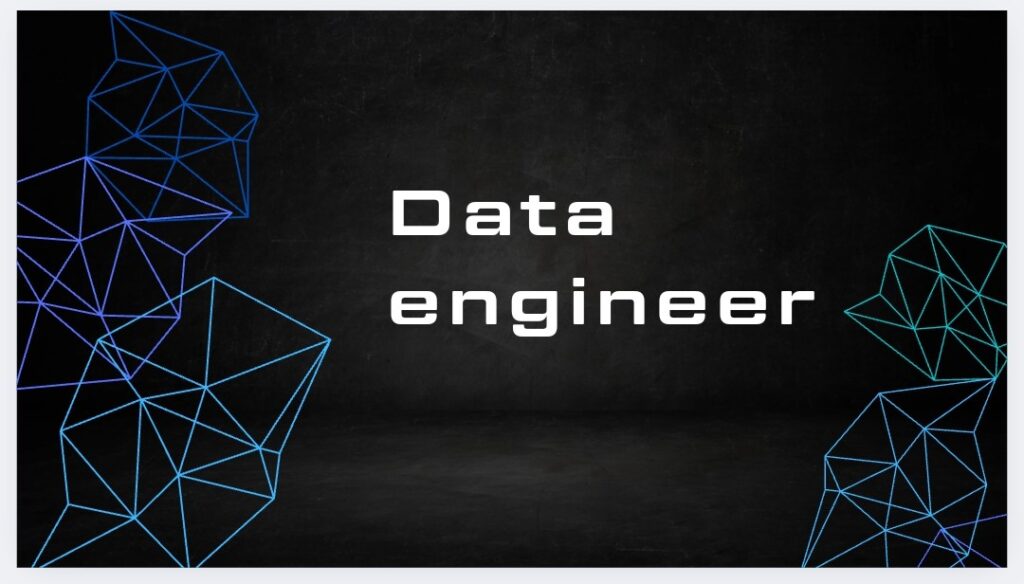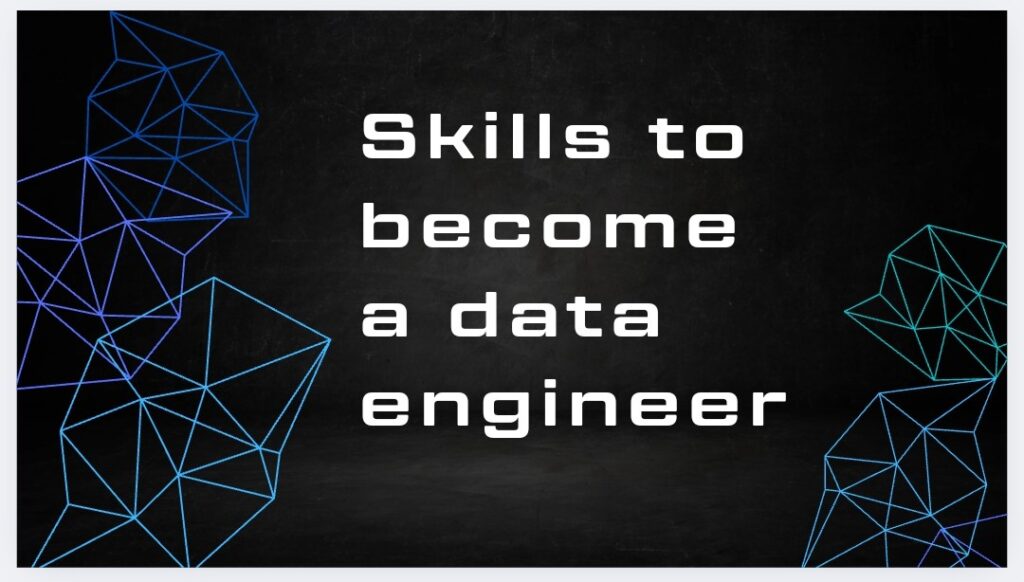A data engineer plans, builds, and manages data systems and databases to ensure efficient and safe data flow, making data available for analysis and other purposes.

What is data engineering ?
Data engineering is a process of creating and constructing systems for data collection, storage, and analysis. Building data streams to combine information from several source systems is usually the responsibility of data engineers.
The discipline of data engineering is concerned with creating and managing the systems and infrastructure that make it possible to gather, store, process, and analyze vast volumes of data.
In essence, it is the process of making data available and useable so that analysts, data scientists, and other stakeholders may gain knowledge and make wise choices.
Who is a data engineer ?
Data engineer is an IT specialist whose main responsibility is to prepare data for operational or analytical purposes.
Data engineer organize data for use in analytics applications by integrating, combining, and cleaning it. They work to optimize the big data ecosystem of their company and make data easily accessible.
Data engineers make ensuring that data scientists and analysts have access to high-quality, dependable data.
Responsibilities of a data engineer
Data engineers design, build, and implement analytics and machine learning data systems. Data administration, data storage, and data collecting are all within the purview of a data engineer. Database management, modeling, data processing, and transformation are also covered here. Just before structuring data for use in analytics applications, they integrate, purify, and combine it.
Now we going to discuss key responsibilities of data engineer in detail.
Data Pipeline Development
Data engineer design, construction, and upkeep of scalable data pipelines that automate data extraction, transformation, and loading (ETL) from other sources.
Data Pipeline development is a system that makes it automatic to transfer and change data from different sources to a location for analysis or other applications later on.
Data Integration
Data engineer combine information from several, usually complex data sources in order to ensure uniformity and accessibility across platforms and divisions.
Data Management
Data engineer establish and maintain relational and non-relational databases, maximizing efficiency and putting in place scalable, dependable, and safe data storage options.
Data Quality
Data engineer uses validation methods, error checks, and data cleaning procedures to guarantee data accuracy, completeness, and consistency.
They also contribute to the creation and implementation of data governance policies, which guarantee that data is handled sensibly and in accordance with legal requirements.
Collaboration
Data engineers collaborate closely with data scientists, analysts, and business stakeholders to better understand data needs, assist data-driven projects, and improve data accessibility.
Performance Optimization
Data engineer reduce processing times and increase the effectiveness of data pipelines and processes by optimizing database and query performance.
Monitoring
Data engineer make sure that there is little downtime and high availability by routinely monitoring data pipelines and troubleshooting problems.
Continuous learning And Improvement
Data engineer,keep updated of emerging technology, tools, and data engineering best practices,apply these developments to boost productivity and efficiency.
Skills required to become a data engineer
To become a data engineer you need to possess both technical and soft skills.Now we are going to learn each and every skill in detail.

1.Programming Language
You need to learn python, Java, SQL programming languages.
- Python is a fundamental tool in data engineering that is used for automation, pipeline creation, and data manipulation.
- SQL is necessary for managing and interacting with data in databases.
- Java used in distributed systems and massive data processing.
2.Database Management
Data engineering requires SQL and the database management because they enable you to model intricate business logic and query and manage big databases. The field of SQL has grown considerably to suit contemporary data difficulties, even though it is still essential for relational databases.
Developing your SQL foundation is the first step towards becoming an expert in database administration. After that, investigate NoSQL systems like MongoDB before delving into distributed SQL databases like CockroachDB.
3.Big Data Technologies
The foundation of contemporary data engineering is made up of big data technologies, which allow businesses to process and analyze enormous volumes of data at scale.
Gaining proficiency with these tools are essential for building strong, scalable systems as data builds up at an exponential rate.
The world of big data has changed dramatically. In contrast to the past dominance of batch-oriented systems like Hadoop, spark,Kafka.
- Hadoop is a platform for processing and storing massive datasets in a distributed manner.
- Spark is a quick and versatile cluster computing platform for handling large amounts of data.
- Kafka is a platform for distributed streaming that facilitates the construction of real-time data pipelines.
4.Cloud Computing
Cloud computing is now at the core of contemporary data systems, data engineers must be proficient in it.
Building scalable, effective solutions requires knowledge of distributed systems and cloud platforms, which are essential as the majority of businesses shift activities to the cloud. Cloud computing has advanced beyond simple computation and storage.
AWS, Azure, GCP are cloud platforms at least we have proficiency in one from them.
5.ETL Tolls
A platform for coordinating intricate data pipelines is Apache Airflow. Additional ETL resources can be helpful to have prior experience with programs like NiFi, Informatica, or Talend.
6.Data Modeling And Warehousing
Knowing how to create effective data schemas and select suitable data types is known as data modeling.
Understanding the principles and techniques of data warehousing.
7.Communication
Communicating technical knowledge to audiences who are both technical and non-technical in an efficient manner.
8.Collaboration
Collaborating productively with analysts, data scientists, and other engineers.
9.Problem Solving
Examining difficult issues and coming up with creative fixes.
10.Continuous Learning
keeping up on data engineering trends and emerging technology.
How to become a data engineer ?
Follow the steps given below to become a data engineer.
- Get educational knowledge.
- Get certified from a reputed college.
- Learn Basic required skills.
- Gain experience to become expert.
- Stay up-to-date and keep continuations learning.
Why to become a data engineer ?
Reasons to become a data engineer are given below.
- Data engineer is a high growing profession.
- Their is High demand of data engineer.
- Data engineering provides you high earning potential.
- Data engineering provides high Diverse career options.

Thanks